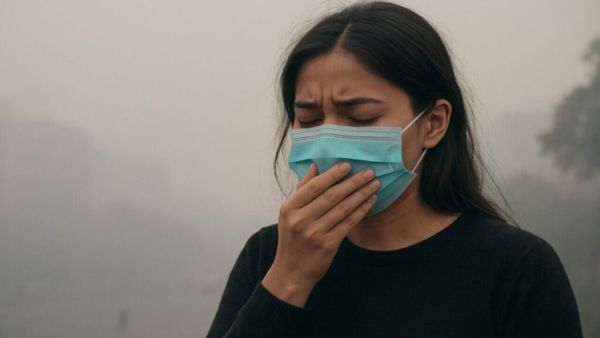
Introduction: The Double Whammy of Weather and Pollution
As the weather shifts—especially transitioning from warmer to cooler months—many regions experience a sharp deterioration in air quality. This change, often due to meteorological factors like lower wind speeds and temperature inversions, traps pollutants close to the ground, creating smog. This phenomenon poses a severe risk to respiratory and cardiovascular health. Protecting oneself requires proactive measures, focusing on both external shielding and internal immunity.
1. Shielding Your Airways: The Right Mask is Crucial
Experts unanimously agree that wearing the correct protective gear is the first line of defense when stepping outdoors:
- Choose N95 or N99 Masks: Surgical and cloth masks offer minimal protection against fine particulate matter ( and ). Always opt for certified or respirators, as they are designed to filter out up to or of airborne particles.
- Proper Fit: The mask must form a tight seal around the nose and chin to ensure the air you breathe is filtered. A poorly fitted mask is ineffective.
- Limit Outdoor Peak Exposure: If possible, avoid rigorous outdoor activities during peak pollution hours, typically early morning and late evening, when particulate matter concentration is highest.
2. Mastering Indoor Air Quality (IAQ)
Since we spend a majority of our time indoors, maintaining high Indoor Air Quality (IAQ) is critical:
- Use Air Purifiers: Invest in a high-quality air purifier equipped with a HEPA filter (High-Efficiency Particulate Air) to remove fine particles and an activated carbon filter to absorb odors and volatile organic compounds (VOCs).
- Close Doors and Windows: During periods of high smog or poor AQI, keep windows and doors closed to prevent polluted external air from entering your living space.
- Avoid Indoor Pollutants: Refrain from burning incense sticks, candles, or wood inside, as these activities significantly worsen IAQ. Ensure kitchen ventilation is used while cooking.
- Maintain Humidity: Use a humidifier to keep the air from becoming too dry, which can irritate the respiratory tract and make it more susceptible to pollutants.
3. Boosting Internal Defense: Diet and Hydration
Experts recommend dietary changes to bolster the body’s natural defenses against oxidative stress caused by pollutants:
- Antioxidant-Rich Foods: Incorporate foods rich in Vitamin C (citrus fruits, bell peppers), Vitamin E (nuts, seeds), and Beta-Carotene (carrots, sweet potatoes). These compounds combat the free radicals generated by toxins.
- Omega-3 Fatty Acids: Foods like fatty fish, flaxseeds, and walnuts can help reduce systemic inflammation, which is often exacerbated by prolonged exposure to smog.
- Herbal Support: Traditional remedies, such as consuming a mixture of turmeric and black pepper or drinking herbal teas with ginger and holy basil (Tulsi), are recommended for boosting respiratory immunity.
- Stay Hydrated: Drink plenty of warm water throughout the day. Hydration helps keep mucous membranes moist, which aids in trapping pollutants and flushing toxins from the body.
4. Lifestyle Adjustments and Monitoring
- Regular Steam Inhalation: Inhaling steam can help clear the upper respiratory passages of deposited particles and relieve irritation. Adding a few drops of eucalyptus oil can enhance this effect.
- Gargle Daily: Gargling with warm salt water cleanses the throat and reduces irritation caused by inhaled pollutants.
- Monitor AQI: Make it a habit to check the Air Quality Index (AQI) daily. Adjust your outdoor plans based on the AQI rating; if it is ‘Severe’ or ‘Very Poor’, stay indoors.
Conclusion
Protecting yourself from air pollution requires a multi-faceted approach. While we await long-term environmental solutions, adopting these expert-backed measures—from choosing the right mask and purifying indoor air to fortifying your body with antioxidants—is essential for maintaining respiratory health and overall well-being during periods of environmental stress.
-
AISSEE 2026: Applications for the Sainik School Entrance Exam for Classes 6 and 9 have begun; apply through the direct link.

-
All your Gmail emails will be sent to Zoho Mail; just enable this setting.

-
UPI payments will also be available through ChatGPT, NPCI has made preparations.

-
You can sell mobile data from your home Wi-Fi connection. Learn how to avail the benefits of this scheme.

-
Digital Silver Investment Tips: Like digital gold, there's an option to buy digital silver. Learn how to invest in it
